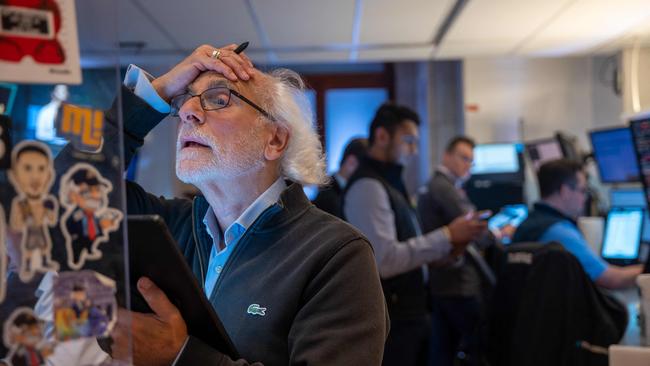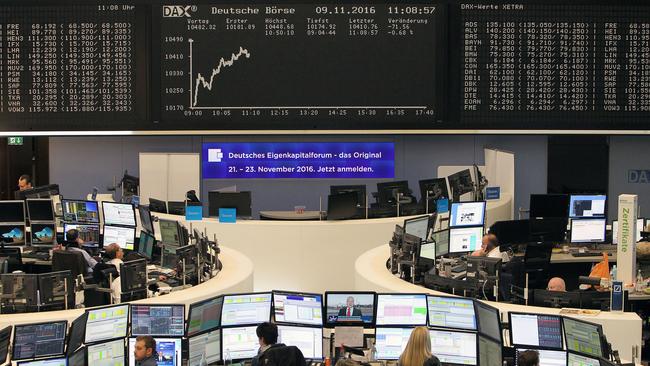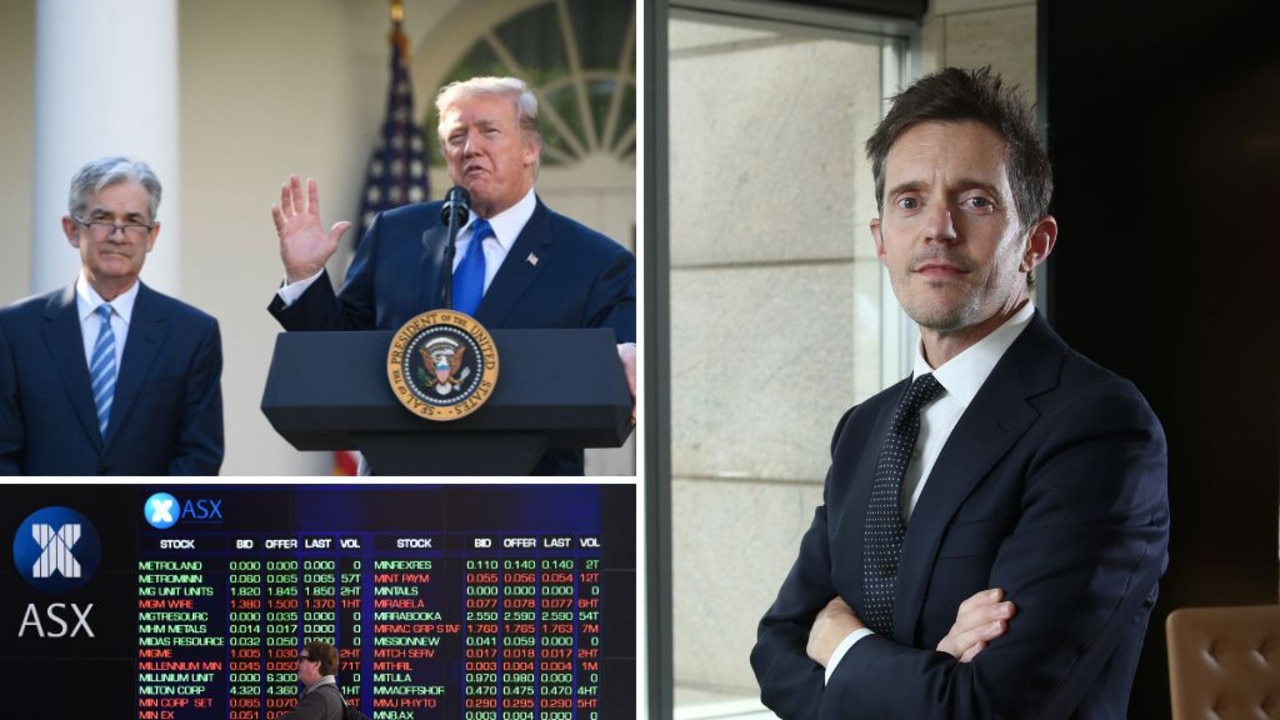Bulls halted as investors face multi-month correction
It must be frustrating for momentum followers but the same fall in US mega-caps that pushed the ASX 200 up two weeks ago has turned into a significant headwind for risk assets.

Put the bullish targets on hold – investors may be facing a multi-month correction.
Two weeks after Australia’s ASX 200 benchmark jumped 2.5 per cent in four days to a record 8083.7 points as lower US inflation sparked a shift from US mega caps to shares that have been left behind in the AI boom, the ASX 200 was back where it started below 7900 points.
The S&P/ASX 200 fell 1.3 per cent to a two-week low of 7861.2 points on Thursday.
It came after the S&P 500 fell 2.4 per cent to a six-week low of 5428 points. The Nasdaq 100 fell 3.6 per cent. These were the biggest falls in US benchmarks since late 2022.
The so-called “Magnificent 7” index of US mega caps fell 4.8 per cent.

It was the worst day for Mag 7 since July 2022, when a damaging bear market was underway.
Tesla plunged 12 per cent and Alphabet lost 5 per cent after their earnings reports.
Even market darling Nvidia dived 6.8 per cent as rising volatility and risk aversion fuelled selling.
It must be frustrating for momentum followers, but the same fall in US mega-caps that pushed the ASX 200 up two weeks ago has turned into a significant negative force for risk assets.
A 3.5 per cent fall in Mag 7 and related 2.2 per cent drop in the Nasdaq 100 after below-consensus US CPI data two weeks ago sparked a significant rotation from US mega-caps into small caps, value stocks and the Australian market.
But with the Mag 7 selloff accelerating and volatility exploding – the VIX index has gone from 13 to 18 per cent in two weeks – it now has the potential to cause a correction in the global share market.
“The prevailing sentiment is that investors are growing increasingly wary of the colossal spending by US tech giants on artificial intelligence,” said SPI Asset Management managing director Stephen Innes.
“The ‘hyperscalers’—Amazon, Meta, Microsoft, and Alphabet—have splurged around $US357 billion ($540bn) on capital investments and R&D over the past year. This hefty expenditure looms large on their balance sheets, necessitating substantial future revenues to validate these massive outlays.
“While this spending might not affect earnings immediately, there’s an inevitable moment when these giants must prove that their AI investments will lead to significant revenue and profit growth, not just meet analysts’ expectations. The pressure is mounting,” he said.
Compounding that worry has been a surprising lack of significant fiscal stimulus announcements from China’s “Third Plenum” meeting of Communist Party officials last week.
That has caused a renewed selloff in commodity prices.
Iron ore and copper have sunk to four-month lows under $100 and $9,000 a tonne, respectively.
That’s despite two monetary policy easing measures by China’s central bank this week.
Even the price of gold – which should benefit from risk aversion – has started to tumble.
Spot gold has fallen almost 5 per cent from a record high of $U2,483.73 an ounce in the past week.
Leveraged traders may have had to cover losses in Mag 7 after a 10 per cent fall in two weeks.
The risk-sensitive Australian dollar has also been caught up in the risk aversion in global markets.
Despite ongoing speculation of another interest rate hike by the Reserve Bank and rate cuts by the Federal Reserve in coming months, the Aussie dollar has dived 3.8 per cent from a six-month high of US67.99c to a two-month low US65.41c in the past two weeks.

Six economists expect the RBA to hike rates at its meeting next month.
The market-implied probability of a 25 basis point hike in the cash rate target to 4.60 per cent peaks at 36 per cent at the November board meeting. A Fed rate cut is fully priced for September.
Nomura’s head of cross asset strategy Charlie McElligott said disappointing results from Tesla, Alphabet, Visa and Amazon fed concerns about “Mag 7 crowding”. Misses by Deutsche and LVMH fuel “more significant concerns about the magnitude of the European growth slowdown”.
“And as an additional ‘curiosity’ for risk sentiment, this morning we see ex-Fed and current Bloomberg opinion writer Bill Dudley pulling a full-tilt U-turn, departing the ‘high for longer’ camp, and instead, now calling for a Fed cut.
Interestingly, Mr McElligott’s clients are “looking to short into this Russell 2000 Small Caps rally, viewing it as a positioning stop-out and not based upon any sort of true ‘fundamental’ economic regime shift that would benefit this part of the equities' universe, at least (not) just yet.”
He said small caps historically tend to work best in a harsher slowdown or outright recession – implying a deeper Fed rate cutting cycle than is now anticipated.
That would see a more significant rise in ‘early-cycle’ economically-sensitive companies that should be the largest beneficiaries of lower interest rates, a lower cost of capital and easier funding.
Ahead of Thursday’s release of US GDP data, Mr McElligott said the “challenge” for the Fed is to choose between “insurance cuts” that preemptively secure a “soft landing” or the “cutting too late path” when an economic slowdown has “already metastasised into a recession scenario.”
He said the difference between the currently-priced US interest rate scenario of two cuts by year-end versus that “surprise July cut” advocated by Dudley is “monumental”.
In his view, it’s “absolutely consensus” that the stock market would “get absolutely smoked in the aftermath of a July rate cut” by the Fed, as it would suggest the economy “must be really bad.”






To join the conversation, please log in. Don't have an account? Register
Join the conversation, you are commenting as Logout